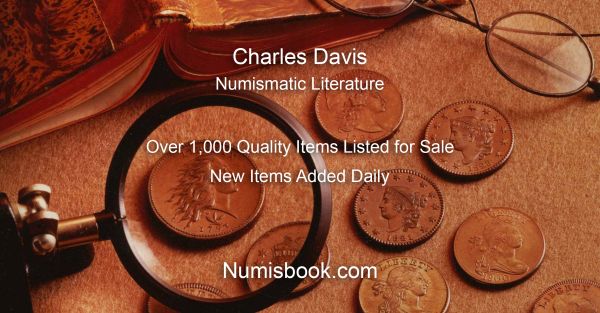
PREV ARTICLE
NEXT ARTICLE
FULL ISSUE
PREV FULL ISSUE
PERIODICAL: PAN CLARION FALL 2025The Fall 2025 issue of The Clarion from the Pennsylvania Association of Numismatists (PAN) has been published, as the group readies itself for their upcoming fall show. I expect to attend, and hope to see many E-Sylum readers there as well. -Editor Table of Contents Editor's Desk
Using a great design again, and again—the Buffalo nickel
The Libertas Americana medal
The ICE Man—Accumulator?
A quick guide to Civil War coinage
Counterstamps: Window into the past
The great gold heist of 1933: A lesson in power and pretext
Fall Show schedule
The 1930 Buffalo nickel—good value?
The commoditization of coins
PAN KidZone flyer and auction lots PAN News PAN Member Club News Here are editor Matt Campbell's notes on the issue. -Editor
From the Editor's Desk
In this issue, PAN member Rob Throckmorton contributes "The ICE Man—Accumulator?" In this enjoyable piece, he distinguishes between a thoughtfully assembled collection and a hodgepodge accumulation of stuff. Both are virtuous in their own way, and Rob is always refreshing—he should be dubbed "The Joyful Collector." On the opposite end, I explore numismatic Big Business in "The commoditization of coins." Ultimately, our beloved classic coins are too unique to be widgetized for investment funds. Longtime contributor Mark Benvenuto writes about James Earle Fraser and the iconic Buffalo nickel design in "Using a great design again, and again—the Buffalo nick el." It's wonderful to see the designs of classic coins be resurrected on modern gold or silver coins, where the artists' designs can be rendered in a proof strike. Andy Wedding from GreatCollections coincidentally picks out a Buffalo in "The 1930 Buffalo nickel—good value?" He highlights a superb sample with a strike from an early die state and contrasts it with another example from a later die state. In a similar vein to Mark's piece about the various incarnations of the Buffalo nickel design, Malcolm Johnson explores an iconic piece in "The Libertas Americana medal." While few collectors can obtain an original strike, Malcolm shows us there's opportunity to include this design in our collections through restrikes. I also kicked off a practical series with "A quick guide to Civil War Coinage." People often like to collect coins from certain historical events, and this article simply lays out the dates to look for to assemble a set most affordably and bypass tougher dates. In a future issue, I'll look at 1812. PAN life member and assistant bourse chairman Blaine Schiff shows us while the singer may change, the tune stays the same in "The great gold heist of 1933: A lesson in power and pretext." And, Greg Bennick writes about counterstamped coins, an ingenious method of free advertising, in "Counterstamps: Window to the past." He will be a guest lecturer at the PAN show Friday, October 17. A theme that emerged across numerous articles this issue concerns strike of circulation coins. The US Mint has always been a factory with production targets to meet. Often, the Mint used worn dies, or struck coins with less pressure to extend the life of dies, creating coins with mushy detail. Three walking liberty halves are shown below to illustrate the point. The 1937 proof captures all of the glory of Weinman's design and the 1938-D (center) at MS67+ is an incredible business strike. The 1919-D, MS-64 CAC, was described by Stack's Bowers as a "severe strike rarity." Coins of that issue exhibit flat strikes, and there are less than 20 coins in MS-65 and MS-66 between NGC and PCGS. With grading, there's always more to learn! Congratulations to Matt and PAN on their First Place Barbara J Gregory Outstanding Regional Publication award. I'm a proud Life Member and Past President of PAN, and have watched with pride and awe as the group just keeps on getting better and better with each passing year. Their shows are top in the nation. See the article elsewhere in this issue for a schedule of educational speakers. -Editor
For more information on the Pennsylvania Association of Numismatists (PAN), see:
Wayne Homren, Editor The Numismatic Bibliomania Society is a non-profit organization promoting numismatic literature. See our web site at coinbooks.org. To submit items for publication in The E-Sylum, write to the Editor at this address: whomren@gmail.com To subscribe go to: Subscribe All Rights Reserved. NBS Home Page Contact the NBS webmaster 
|





